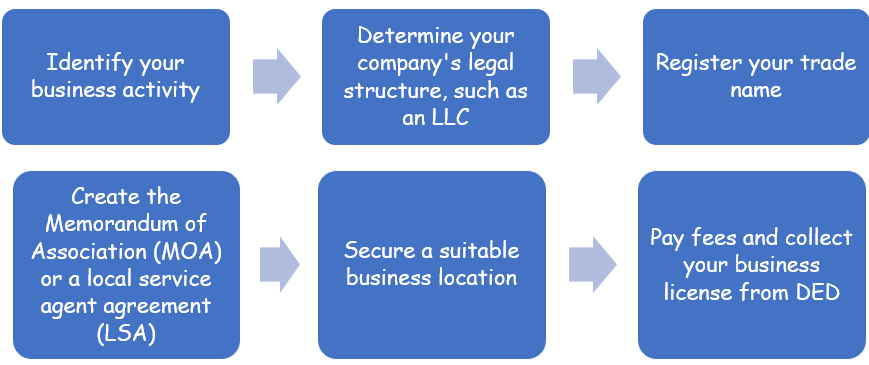Why Start a Business in the UAE?
For those with an entrepreneurial itch, the United Arab Emirates (UAE) beckons as a prime destination for business ventures. Its strategic geographic positioning at the crossroads of continents makes it a global hub for trade and commerce. Coupled with its forward-thinking government policies, the UAE fosters a nurturing environment for businesses to thrive and flourish.
The UAE government goes above and beyond to create an enticing landscape for investors and entrepreneurs. It offers a plethora of tax incentives and exemptions, designed to minimize financial burdens and allow businesses to maximize profits. The tax regime in the UAE is a breath of fresh air, offering relief from corporate and personal income taxes. This favorable tax climate is a magnet for businesses seeking to optimize their financial performance.
Beyond its fiscal allure, the UAE boasts a robust infrastructure that supports the seamless operation of businesses. Its world-class ports, airports, and transportation networks facilitate efficient import and export operations. The government’s commitment to innovation and technology has resulted in cutting-edge infrastructure, ensuring that businesses have access to the latest advancements.
The UAE’s legal framework is designed to provide a secure and transparent environment for business. Its commercial laws are based on international best practices, ensuring fairness and equity for all. This robust legal system instills confidence in investors and entrepreneurs, encouraging them to invest and grow their businesses in the UAE.
The UAE is a melting pot of cultures, with a diverse and skilled workforce hailing from around the globe. This pool of talent provides businesses with access to a vast array of expertise and experience, enabling them to assemble high-performing teams that drive innovation and growth.
Business Setup in the UAE: A Comprehensive Guide
Embarking on a business venture in the United Arab Emirates (UAE) often begins with grasping the intricacies of its business setup landscape. This article unravels the essential knowledge to help you navigate the decision-making process effortlessly.
Types of Business Structures in the UAE
The UAE offers a diverse spectrum of business structures to accommodate varying needs. From the ubiquitous Limited Liability Company (LLC) to the specialized Free Zone entities, each structure boasts unique advantages.
* **Limited Liability Company (LLC):** A popular choice for foreign investors seeking to establish a presence in the UAE. LLCs offer limited liability protection to shareholders, meaning their personal assets are shielded from business debts. This structure is recommended for businesses requiring a physical presence in the country.
* **Free Zone Companies:** Designed to attract foreign direct investment, Free Zones provide a host of incentives, including 100% foreign ownership, tax exemptions, and simplified regulations. These zones are tailored for specific industries, such as technology, media, and logistics.
* **Sole Proprietorship:** This structure is suitable for individuals seeking to operate a business under their own name. While simple to establish, sole proprietorships do not offer liability protection, exposing the owner’s personal assets to business liabilities.
* **Partnership:** A partnership involves two or more individuals sharing ownership and responsibilities. There are two types of partnerships in the UAE: general partnerships, where all partners have unlimited liability, and limited partnerships, where liability is limited for some partners.
* **Branch Office:** A branch office is an extension of a foreign company that operates in the UAE. It does not have a separate legal identity, and its liabilities are attributed to the parent company.
Understanding the various business structures is paramount to making an informed decision that aligns with your specific objectives and circumstances.
